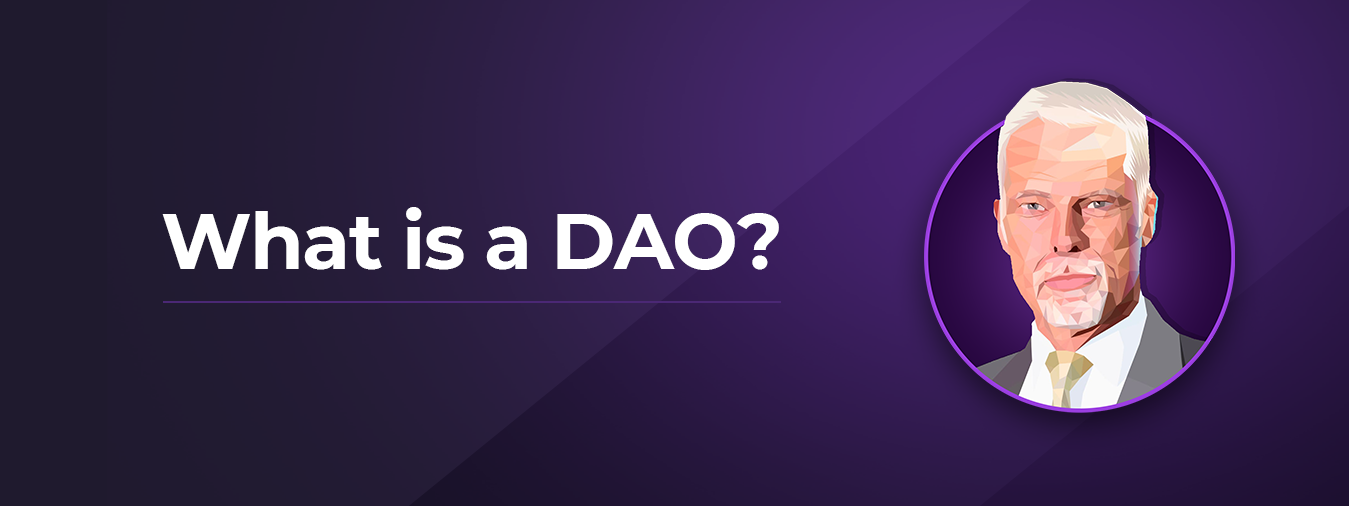What is a DAO?
A DAO is an organizational entity that has no central governing body, and has no authority. Instead the “power” is distributed across participant, for instance token holders*. They can vote on a selection of issues, and by that – as a collective – are the default management of the DAO. That also means (and I think that is important to realize) that this management is only held by those who show up and vote. DAOs therefore require full community participation to function, and more importantly continue to be distributed (decentralized). The DAO is a bottom-up management approach. –for the execution, DAOs heavily rely on smart contracts (for example, decision A leads to code may be implemented).
The strength of the DAO lies in the fact that all who participate in it share a common goal, for instance securing the integrity of the blockchain, or to boost adaptation. As everyone as a tokenholder has a vested interest in the success of the blockchain it is assumed everyone acts in the best interest of the project. As all activities of the DAO are public, all dissenting voices are in a way exposed, which in a way prevents participants to act contrary to the best interest of the DAO.
The DAO as an entity has been popularized by the rise of cryptocurrency enthusiasts and blockchain technology, but is in itself not new. A commune can be seen as a DAO too.
Advantages: Limitations:
- Decentralization Speed
- Participation Education
- Publicity Inefficiency
- Community Security
Crucial for any DAO:
- Realize that a DAO is a living organism
- Ensure the integrity of the DAO (being secure) as a hack to the Treasury would kill any DAO.
* = For the sake of argument I am not distinguishing between coins and tokens.
What makes the DAO stand out in PIVX?
Think the best way to describe what makes the DAO stand out in PIVX is that the DAO setup creates a governance structure that gives the opportunity to:
To begin with it is bringing greater transparency as it brings decision making on-chain so to say. Subsequently, as the decision making is on-chain, so is the whole process of $$ disbursement. Those two together mean there is absolute accountability, and no way in cheating or omitting facts and funds. So, the DAO is a new model for accountability.
In addition the way we are organized also means that the traditional model of fundraising is flipped. Namely the Treasury is funded by the running of the blockchain and the MNs, and by that creates an “income”. In return the Treasury (which is operated as a DAO) gives that back to the ecosystem in form of funding of projects. And, these projects can be nominated by everyone. They are listed in https://pivx.org/proposals and can be voted on by everyone who runs a MN. This is enabling greater community agency, like participatory budgeting, referenda, organize/raise funds/deliver services. As a side comment, granted, that is in my personal view not ideal, as it locks out a significant part of the community and having 10k pivs is a hurdle.
Furthermore there is an understanding and appreciation that DAOs are in its infancy. That realization shows great wisdom of the PIVX community. Nothing is set in stone yet, and we need to work on checking, improving and modifying the DAO as we develop further.
In conclusion the big thing I see in PIVX is that a successful blockchain is not just code. I dare to say on the contrary: it is the community. Without a community, and engagement there is no future for a project. And the DAO plays a crucial role in ensuring engagement.
